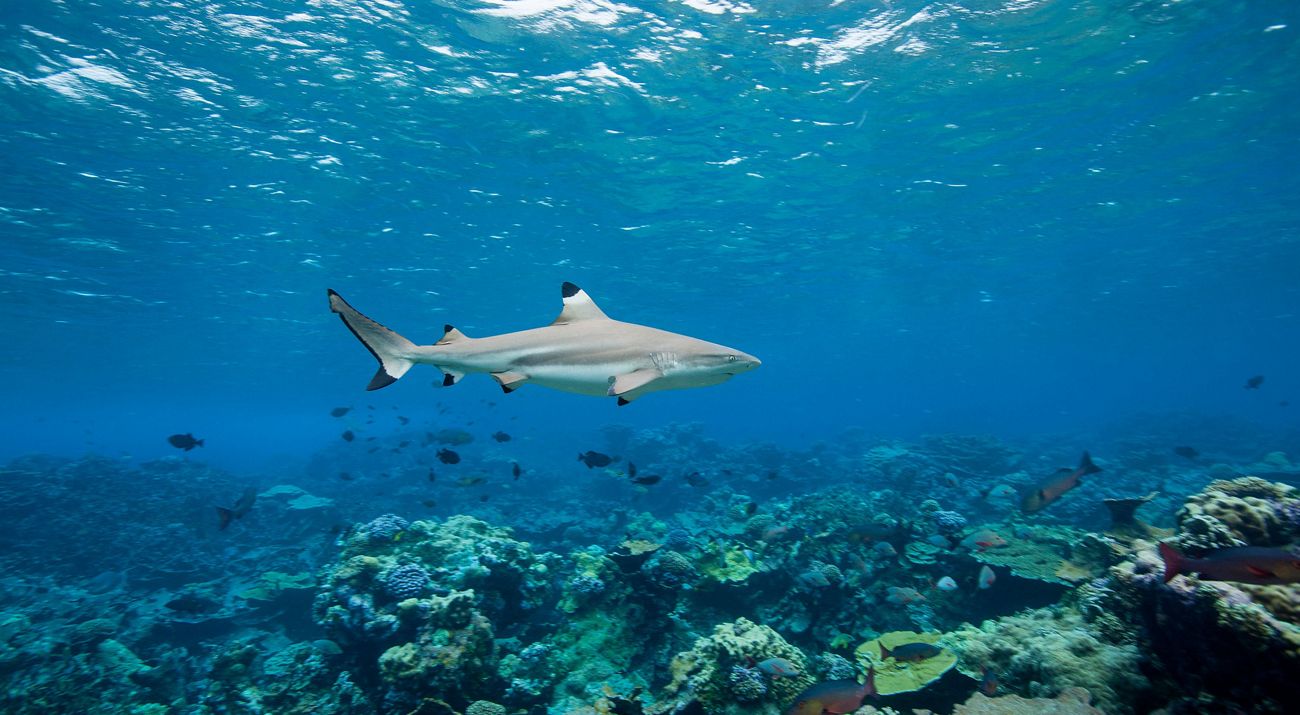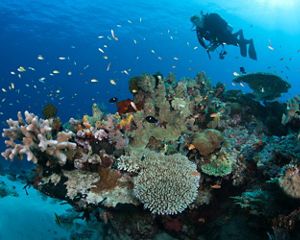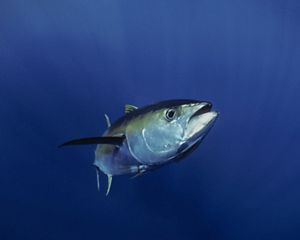Meet the Blacktip Reef Shark
Blacktip reef sharks can be found in many tropical Pacific reefs. Born in groups of about four pups, blacktips typically grow up to 5 feet long. Blacktip shark pups spend most of their time in shallow nurseries to avoid being eaten by larger sharks. They tend to have relatively small home ranges, and tend to be strongly faithful to those home areas—but researchers believe they may occasionally range farther afield to forage for fish in otherwise-unpopulated corners their home reef.
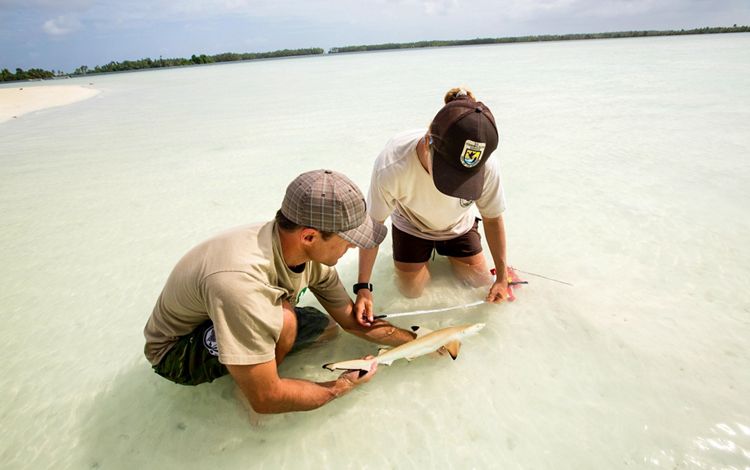
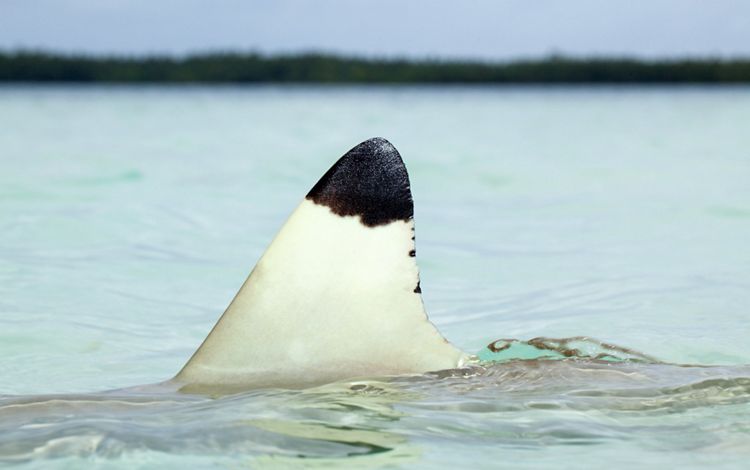
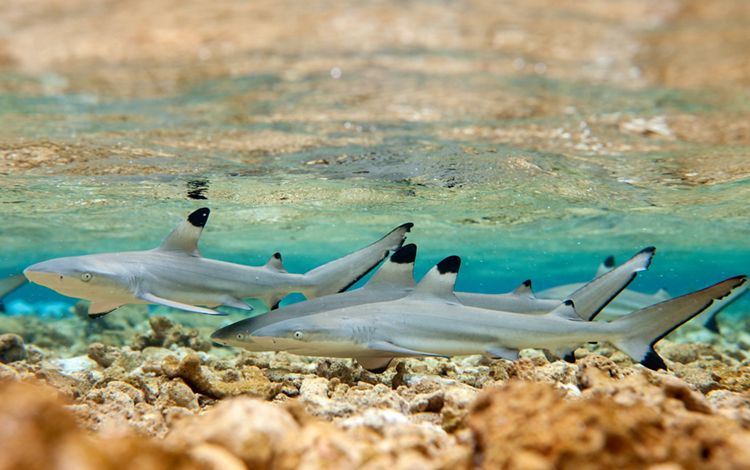
Protecting the Blacktip Reef Shark
Palmyra Atoll, a Nature Conservancy preserve and a U.S. Fish & Wildlife Service National Wildlife Refuge with 15,000 acres of surrounding coral reefs, is one of the few places left where sharks and other large apex predators dominate the marine ecosystem. The refuge is off limits to commercial fishing, and with the exception of its occupation by the U.S. military in World War II has never had a permanent human settlement.
Between 2006 and 2014, researchers tagged 1,300 reef sharks at Palmyra and fitted them with numbered ID tags. Of the 1,300 tagged sharks, 350 individuals were recaptured—the largest reef shark tag recapture program in the world. In addition, researchers recorded information on the sex and size of each animal, the location of its capture, and fitted some sharks with acoustic telemetry tags which broadcast the shark’s location to an extensive system of receivers located around the atoll. Researchers then plugged all the data into an algorithm that estimated the total population size.
Largescale studies like this help the TNC and others understand potential threats to shark populations. Though blacktip reef sharks are not a threatened species, many shark species have seen steep declines from habitat loss and overfishing. By knowing how blacktips behave and where they go, TNC can help protect these sharks in the long term.
See what TNC is learning by studying wildlife at Palmyra Atoll.
